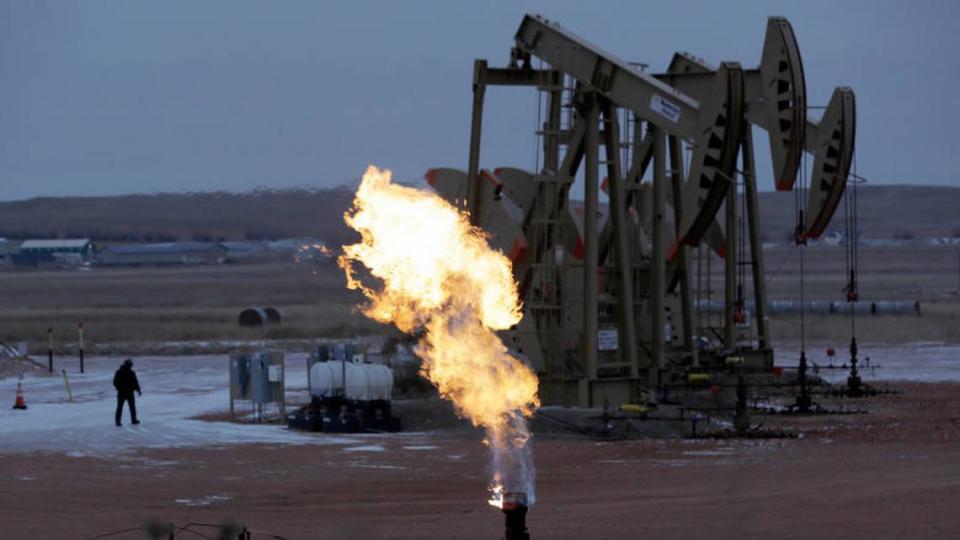SC faces repeat of costly nuclear fiasco if lawmakers don’t wise up, critics say
South Carolina faces a repeat of the 2017 V.C. Summer nuclear construction debacle that soaked ratepayers if state legislators make it easier for utilities to build a large natural gas plant in Colleton County, critics said this week.
A bill introduced Feb. 15 in the House would strip protections that are designed to preserve the environment, keep utility rates from soaring, and restrict the government from taking people’s land, according to a coalition of energy and conservation groups.
They held a rally at the State House on Tuesday and later spoke at a legislative hearing to formally oppose the bill that paves the way for a new natural gas plant that is estimated to cost $1 billion.
Bill supporters say a big gas plant — with an expected capacity of about 2,000 megawatts — will provide needed electricity as the state grows. But environmentalists say there are other ways to meet future energy demands, including solar power.
John Tynan, who directs the Conservation Voters of South Carolina, said the bill is a “wish list’’ for utilities seeking limited oversight of their plans. And it draws eerie parallels to the multi-billion dollar VC Summer construction fiasco in 2017, he said.
At the time, the Legislature had loosened oversight of power plant construction to make building two reactors at the VC Summer site in Fairfield County easier. With the legislature’s permission, utilities raised rates and charged customers the upfront cost of the reactors, only to quit the project on July 31, 2017, amid rising costs and construction delays. Customers ended up paying billions for a project that never produced power.
“This is exactly the same song as V.C. Summer seven years later,’’ Tynan told The State before the rally, which featured a cross-section of the state’s environmental groups. “The utilities are asking for a sweetheart deal via this legislation that would allow them to build a 2,000 megawatt power plant. It’s the same thing they said when the Legislature passed the Base Load Review Act,’’ the legislation that enabled the doomed nuclear construction project.
All told, some $9 billion had been spent when the project was abandoned. SCE&G, later acquired by Dominion Energy, partnered with state-owned Santee Cooper on the project. Ultimately, top SCE&G executives were prosecuted criminally after failing to alert shareholders and the public that the project was in trouble. Two executives were sentenced to federal prison.
Dominion and Santee Cooper, which are now partnering on plans for the natural gas plant, sharply disputed allegations that the natural gas plant bill will allow for a repeat of the Summer nuclear scandal.
”Critics of the bill are trying to make comparisons to ... our attempts to expand VC Summer, ‘’ Santee Cooper chief executive Jimmy Staton said during Tuesday’s hearing before a House committee. “This is completely different. Natural gas technology exists today. It’s consistently deployed around the country and around the world. It’s used extensively, and it’s much less expensive to build than VC Summer would have been.”
The utilities and some lawmakers say South Carolina needs the big gas plant — to be built at an old power plant site in the Canadys community of Colleton County — because the state is attracting more residents and more industry, and South Carolina must have additional power in the future.
Dominion has said building a large plant jointly with Santee Cooper would save money and eventually reduce customer costs.
“We are energy deficient right now for the state of South Carolina,’’ said Rep. Russell Ott, a Calhoun County Democrat and co-sponsor of the House bill. “We have got to get caught up. We don’t have enough electricity right now in the immediate future. We have got to be able to do whatever is necessary in our ability to get to that point.’’
Santee Cooper and Dominion also say they are not trying to chill the expansion of solar power, a rising energy source, but to make up for the closure of polluting coal plants that contribute to global warming. The utilities contend that a large natural gas plant is warranted because solar is not available at night or during extended cloudy periods.
“Well, we’ve got more solar than has been committed to be constructed on our system than the output that we would have out of this plant,’’ Dominion’s South Carolina president Keller Kissam told lawmakers. “This plant is simply designed to be paired with all of these renewables.’’
Environmentalists don’t oppose the use of natural gas, which is abundant and less polluting than coal-generated power. But there needs to be a greater mix of solar energy, battery storage and energy efficiency with smaller natural gas facilities, environmentalists say. Concerns are that natural gas prices are unstable and can shoot up, causing power bills to rise, and that gas pipelines could harm the environment.

The voluminous House bill has more than 50 co-sponsors, including Speaker Murrell Smith, R-Sumter, and is believed to have broad support in the lower chamber. The Senate has a similar bill. But some lawmakers oppose the bill, including Richland County Democrats Heather Bauer and Seth Rose. Both spoke at Tuesday’s rally.
The bill includes a section that gives “substantial weight’’ to utilities over others about the risks of electric transmission plans; a section that limits appeals of energy projects, such as power plants, to property owners who are affected, precluding interest groups worried about the general harm of a project; drops the state consumer advocate from speaking on behalf of the public in utility rate cases; and puts some limits on solar energy that critics say could cripple sun power.
It would not only authorize Santee Cooper to join Dominion in the natural gas plant, but it could make building another natural gas plant possible for Duke Energy, said Eddy Moore, an official with the Southern Alliance for Clean Energy.
A consultant that examined Santee Cooper’s part of the project said late last year that a large natural gas plant may not be needed. Santee Cooper needs to look at whether a large plant is the best way to meet future needs, or if the use of solar power and battery storage could be ramped up, the Dec. 22 report by PA Consulting said.
A key worry among environmentalists is how a new natural gas plant would affect miles of the landscape, including sensitive wetlands and natural areas, as well as private property owners. A gas plant would need extensive pipelines to serve it, which is a major issue itself, they say.
If private property were needed, the government could condemn the land and pay the owner what it thinks is a fair price.
But Santee Cooper spokeswoman Mollie Gore said utilities are seeking existing rights of way, including old industrial sites, to lay any pipelines to serve the plant in an attempt to avoid private property. Natural gas pipeline proposals have stirred angry comments from landowners in recent years from Virginia to South Carolina. A plan to extend an oil pipeline through South Carolina eight years ago also drew intense criticism.
She noted that the natural gas plant would also take up far less room than a solar farm large enough to provide nearly 2,000 megawatts.


